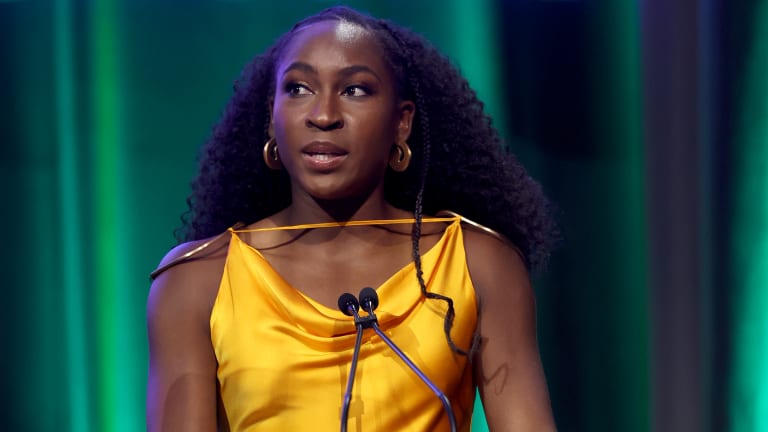Fifty Years of the WTA
The Room Where It Happened: WTA Tour marks 50 years, backwards and forwards
By Aug 26, 2023Fifty Years of the WTA
As the 50th year of the WTA Tour comes to an end, a look ahead to its next fifty
By Dec 31, 2023Fifty Years of the WTA
A spirit of activism has always been a part of the WTA tour
By Dec 11, 2023Fifty Years of the WTA
Chapter 10: From Venus and Serena to Naomi and Maria, the WTA's crossover icons are on a first-name basis
By Nov 07, 2023Fifty Years of the WTA
Approaching 80, Billie Jean King is still globetrotting for investment in women’s sports
By Oct 12, 2023Fifty Years of the WTA
Serena vs. BJK, Evert vs. Barty, Graf vs. Sharapova: Across 50 years, imagine these match-ups between WTA greats
By Oct 06, 2023Fifty Years of the WTA
Chapter 8: The WTA tour's global reach extends to nations and athletes everywhere
By Aug 25, 2023Fifty Years of the WTA
Chapter 7: 50 years after the WTA was created, its future is now—and never-ending
By Jul 15, 2023Fifty Years of the WTA
Chapter 6: Austin, Graf, Sharapova and Raducanu exemplify the WTA's capacity for teenage stars
By Jun 21, 2023Fifty Years of the WTA
Chapter 5: Venus and Serena Williams are perhaps the greatest story in the history of sports
By Jun 03, 2023The Room Where It Happened: WTA Tour marks 50 years, backwards and forwards
Coco Gauff compared Friday evening’s special event in Manhattan to, “a women’s tennis history book that has come to life.”
Published Aug 26, 2023
Advertising
Advertising
Advertising

Said Gauff, “We need to know what came before us.” And as Gauff has also said, “I promise to always use my platform to help make the world a better place.”
© Getty Images
Advertising

What’s on Tennis Channel before the 2026 season kicks off?
Five one-night-only events in the U.S. are among the offerings.